
Hamilton Road by Doreen hall ne Stephens
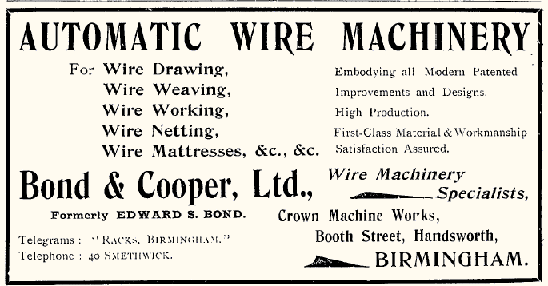
My family home until I got married was 71 Hamilton Road, Handsworth. My mom and dad Ernest and Annie Stephens had lived there since 1914. A comfortable, cosy three bed terraced house, situated in the middle of Hamilton Road, opposite what was later to become Hamilton Road School, a school for who we knew as 'backward' children in those days.
There was always a welcome for all, and the house was rarely empty of friends and neighbours. The back door, like many others in the road, was left open from morning to night. I often recall my mom pinning a note on the front door, directing the rent man to the sideboard where the weekly rent would sit waiting for him, if she had to go out.
My immediate family consisted of Ernest and Annie (mom and dad), my elder sister Winifred, my brother Arthur and me. Most of my childhood/youth memories are surrounding the war years and immediately after, they are a mixture of happy, sad and humorous occasions.
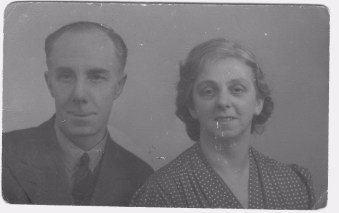
Annie, was a born and bred Handsworth girl, her parents were too. Ernest originated from Dartmouth Street, West Bromwich. Both were solid workers, my mom being a hard working housewife, as most women were in those days. My dad being a toolmaker by trade, working for the war goods during WW2. In her youth, my mom had suffered with TB, and was a lucky survivor, being tenderly cared for in a sanatorium. Apart from arthritis and cataracts, she lived to a good old age of 86. My father, a strict but, kind and gentleman, although reasonably well throughout his life, was immobilised by a stroke in his seventies and died many years before Annie. A devoted couple.
My sister Winifred, who is now 84, was , and to some degree is, a fashion icon. She preferred to save her pennies and have only few clothes, but always 'the best'! During the war years she travelled to Cadbury's, not to make chocolate of course, but to help in the manufacturing of ammunitions.
I am now the tender age of 76, but at 13, I was evacuated to Belbroughton, with two other girls from Hamilton Road -
Peggy Willetts and Amy (whose surname escapes me). We stopped for a year - which is another story - before being allowed to make our own choice about returning home. The trauma of being separated from my family, far overweighed the danger of living in a heavily targeted residential area. I was more than happy to be home, and at 14, I commenced working at George Masons on Soho Road, a grocers store, as a cashier.
My brother, Arthur, a young man full of life and fun, worked as a mechanic at The Island Garage on the corner of Island Road and Holyhead Road, he was also a part-time fireman. Every week, he would attend the RAF recruiting sessions, until eventually at 18 he was accepted, he was elated. Sadly, like many other young men, he lost his adulthood, serving his country.
So, who else do I recall from my life in Hamilton Road?
Well, at 69 were Mr & Mrs Leach, and daughters Hazel and Iris. I often went to 'theirs' for tea. The Leach's were a very patriotic family. Mr Leach always seemed very straight laced, and woe betide anyone who didn't immediately stop what they were doing and stand up straight, if the national anthem was played!
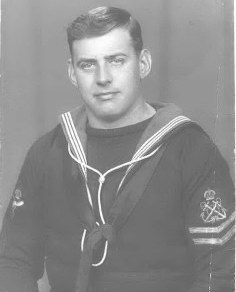
No. 73, housed the Townsend-Smiths. Rene Townsend would not drop her maiden name when she wed.Bill Smith was a burly six foot plus, Petty Officer in the Navy. Rene was a hardworking housewife like my mom. They had a daughter, whose name will never escape me, I remember it sounding so posh and 'special' at the time. When you've heard "Marlene Mary Townsend-Smith, come in now, its time for tea" bellowed up the street, its hard to erase it from your memory.A poignant memory I have of Bill, is when we were all in our garden surface shelter, during a rather severe air raid one night. He was huge in stature and such a strong character, yet he put his arm around me and shook. His words to me were "How do you all stand this - I cant". It still seems strange to me that a man who was used to serving on battleships (Repulse and Renown) in the mist of danger - he'd been torpedoed twice to my knowledge - was finding an air raid experience more daunting.
The Hewson's, lived at No 75. Mr & Mrs Hewson had three daughters and two grandchildren. The thing I recall most about this family, is that they had a son-in-law that was a musician in The Victor Sylvester Orchestra. it was a 'big thing' if you knew someone in showbusiness - and although we didn't really 'know' him as such, we felt well qualified to say that we did- after all we lived next door but one to his in-laws, didnt we?!!
My final, at this point in time, recollection is of the Willetts family,a large family who lived in an equally large house, at the 'bottom-end' of the road.My mom had a huge soft spot for Geoffrey Willetts.I still have contact with Alice, who married one of the sons - Gordon.
Doreen Hall (ne Stephens)
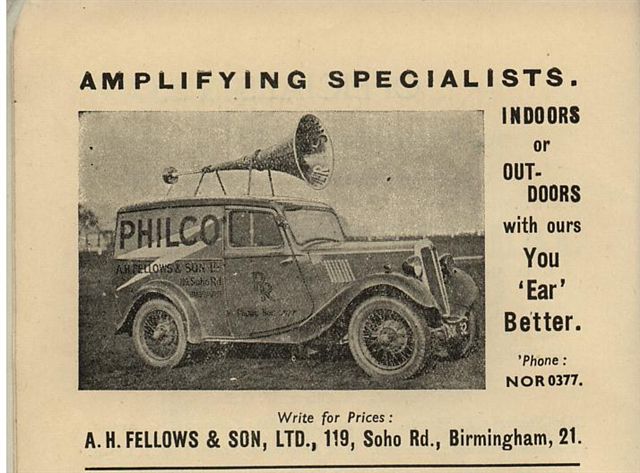
Arthur Stephens 1920-1942, The Uncle I Never Met by Sue Bonner
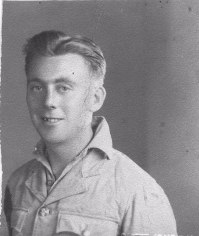
I have decided to scribe this piece myself, you may well ask why? Uncle Arthur died 15 years before I was born. The reason is simple and clear.............my eldest son Andy, is born in his image and I'm reliably informed that he has the same wonderful characteristics that my Uncle possessed.
Arthur Stephens was my mothers only brother, six years her senior.
He attended Rookery Road School, like my mom - his baby sister, and my aunt - his big sis, but actually only two years older than he was.
His character was full of fun, he was well known for 'playing-up'.
He loved all sports, but particularly footie - an ardent supporter of 'The Baggies', and an enthusiastic football player .He was a loyal cricket supporter to his father too. He loved cars - hence his desire to enter a mechanic apprenticeship. He was also a huge animal lover.
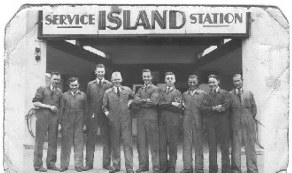
He worked at Island Road Service Station, on the corner of Island Road and Holyhead Road.He was also a part-time fireman. The boss of the garage, had a huge bull mastiff dog.....humungous in stature and appetite. Each dinner time, Arthur would bring him home, and my Nan would feed them both. More often than not, the dog would also have half of Arthur's dinner too.
Nanny Stephens house was always full of his friends, and Saturday nights were 'card nights'. All his mates would arrive, and home made fish and chips was always on the menu. One of Arthur's mates, Bernard Philips - Regent Road, had a ritual if he was losing at cards, he'd rise from the table, take his jacket off, walk fully around the table, back to his chair, put his jacket back on, and take his seat again!! No-one can explain the rationale to this ritual, but it happened without fail, if he was losing the game. I wondered if he was checking that the other players weren't cheating?
Arthur adored his work, it was a big part of his life, and he was very good at it. When war was announced, he made weekly trips to the airforce recruitment office, he was sent away each time. He was elated, when at just 18 he was accepted into the RAF, as an Aircraftsman.
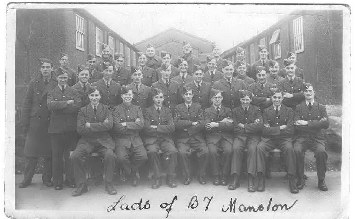
His Mom and Dad did not quite share the same amount of elation. Infact, he knew it was going to be difficult news to break to then, so like any other younger brother would..........he got his older sister to do it! His boss at the service station was so devastated he went to see Arthur's parents to see if they could dissuade him, until he was conscripted. All to no avail.

He settled and loved the RAF too, becoming Leading Aircraftman Stephens. My mom was 'earned' 2s. for cleaning his boots, capbadge and buttons.He trained at Manston in Kent, and was sent to Kinross in Scotland and Blackpool. Whilst in Blackpool he was looked after by a family, who took him for family picnics and treats, which is what families tended to do for forces personnel who were stationed away from home. He was soon commissioned to Singapore.
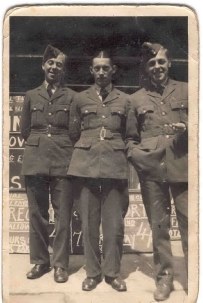
He was taken POW as they landed on Singapore soil.
His mom and Dad had a war office telegram, informing them that he was safe and well, but taken POW. All the family thought that he would be treated like our POW's and that Arthur would be home when the war was ended. They had heard that no Red Cross parcels were getting through, but didn't realise the severe neglect that far east prisoners were experiencing.
In 1942, at the age of 22, Arthur died.
The telegram arrived to bring the devastating news. He had died of dysentery in a POW camp. All the neighbours arrived at the house to support the family. Everyone was inconsolable.
There was no body to mourn, no service offered, and my Granddad was never able to speak of him ever again, right upto the day he died himself.
Arthur is buried in Jarva, a small island near Japan. His grave is marked only with a wooden cross bearing his name.
Sadly, all the letters, postcards, photos, postal orders that the family sent to him, were returned............unopened.
My Nan always wondered if, Arthur thought that they hadn't bothered..............but I know that he wouldn't have thought that.He knew he belonged to a loving family.
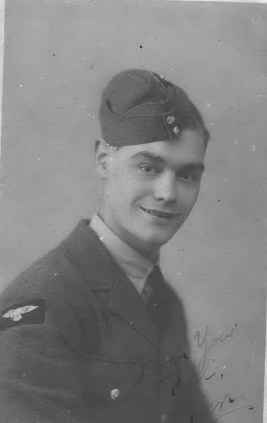
Airman Ken
by Sue Bonner